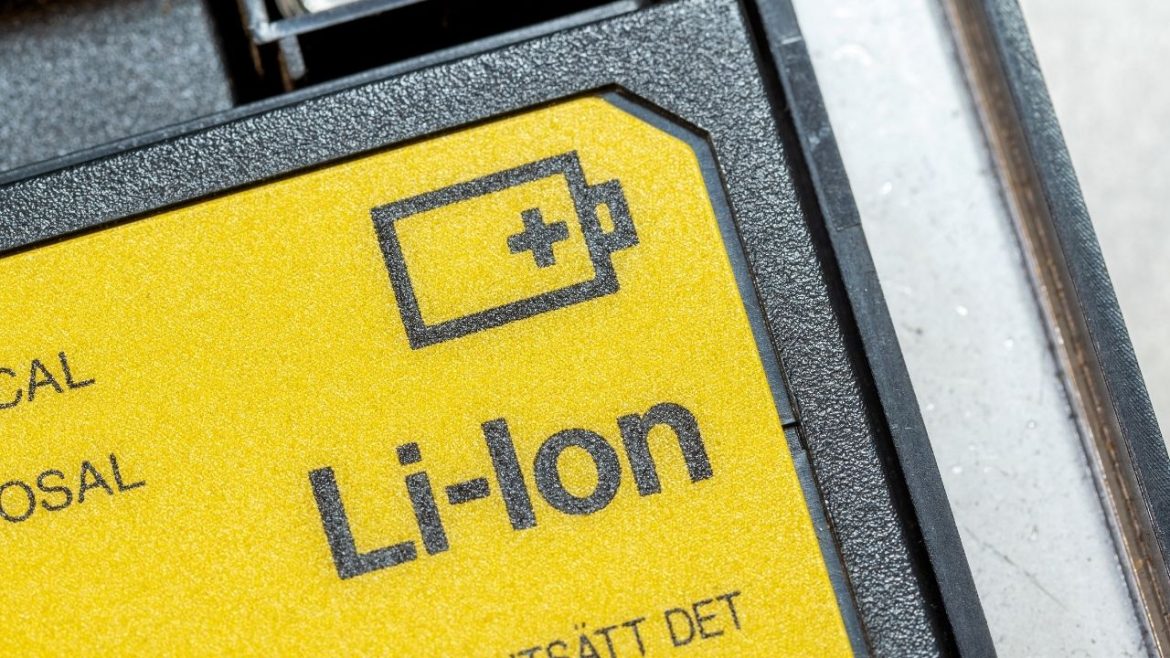Imagine two identical laptops side by side. One lasts through your workday, the other dies before lunch. The difference? What’s inside their batteries?
Portable computing devices experience ongoing competition between Lithium-Ion and Lithium-Polymer battery technologies, which run quietly in the background. Though similar in name, these power sources can significantly impact your daily digital life.
People frequently debate which power source triumphs over the other. Which of the traditional Li-ion and flexible Li-Po ノートパソコンのバッテリー would be the more effective choice? As we unpack and compare both batteries, you’ll discover that the answer is backed by facts. We will now explore the energizing world of laptop batteries while investigating which solution is optimal for you.
Understanding the Basics
Lithium-Ion Batteries
The use of Li-ion batteries as laptop standards has been prevalent for numerous years now. The liquid electrolyte enables lithium ion transport between the anode and cathode parts of the battery. The high energy density capability makes lithium-ion batteries powerful enough to furnish a sizeable amount of power from a compact structure.
Lithium-Polymer Batteries
The electrolyte in Li-Po batteries exists either as a solid or as a gel material. The unique design enables these batteries to take various shapes and sizes suitable for building exceptionally thin laptop models.
Comparing Li-ion batteries and Li-Po Laptop batteries
Energy Density and Performance
When it comes to energy density, both battery types have their strengths. Li-ion batteries come with energy densities ranging from 150-250 Wh/kg but Li-Po batteries provide densities between 300-400 Wh/kg. The increased energy density of Li-Po batteries allows for more extended battery life in compact designs that better suit slim and lightweight laptop construction.
Lifespan and Durability
The total lifetime of batteries is normally expressed through charge cycles. Li-ion batteries provide between 500-1000 usable cycles however Li-Po batteries last between 1500-2000 cycles. Laptop users benefit substantially from the extended longevity of Li-Po batteries since product battery replacement becomes less frequent.
Safety and Stability
Safety stands as an essential factor to evaluate with all battery technologies. Safety issues do exist for Li-ion batteries since their operation can be problematic when they encounter high temperatures or physical damage. Li-Po batteries represent stable battery technology because their solid or gel electrolyte provides enhanced safety. Safety depends on correct usage and care practices for operating both forms of batteries. Safe usage depends on appropriate handling methods for every type of battery.
Charging and Maintenance
Smart charging capabilities function effectively for Li-ion and Li-Po battery systems. The correct method of charging batteries leads to a lifespan extension of 38%. The charging speed of Li-Po batteries reaches up to 2-3C fast charging while providing users with rapid power replenishment. Such technology enables users to receive faster battery recharge while away from a power source.
Form Factor and Design Flexibility
The main strength of Li-Po batteries is their ability to take various forms and dimensions. The bendable nature of Li-Po batteries enables laptop manufacturers to develop slimmer and cutting-edge product designs. The form factor limitations of Li-ion batteries exist because their liquid electrolyte requires a rigid casing structure.
Cost Considerations
In terms of pricing Li-ion batteries exhibit a superior economic position. The manufacturing expenses for Li-ion batteries remain lower than alternate options thus allowing distributors to charge lower prices for laptops. The performance improvements of Li-Po batteries result in higher production costs that contribute to increased laptop expenses.
Environmental Impact
Each battery type creates environmental difficulties because of its chemical elements. The development of new recycling techniques allows companies to recover materials from discarded battery products easily. Both Li-ion and Li-Po battery technologies will experience decreased environmental impact because the industry continues to adopt sustainability practices.
Choosing the Right Battery for Your Laptop
Among your choices for a laptop purchase, examine what factors matter most to you.
- Purchasing a laptop with a Li-Po battery provides the best option for users who need lightweight and compact dimensions.
- People looking for affordable yet dependable performance should consider Li-ion battery laptop models.
- The selection of Li-Po batteries provides extended battery life together with superior energy density and durability but demands a higher financial investment.
The Future of Laptop Batteries
Technology continues to progress which leads to better performance among Li-ion and Li-Po batteries. Scientists actively develop methods to increase battery energy density together with charging speed and safety measures for Li-ion as well as Li-Po battery technologies. New solid-state battery technology represents a promising future direction because it offers better performance quality along with enhanced safety levels.
Key Takeaway
Lithium-ion and Lithium-Polymer batteries each serve unique purposes within the laptop industry regardless of their different characteristics. The combination of Li-ion battery reliability at affordable rates with Li-Po battery flexibility and extended durability makes them ideal options for laptop users. Learning about the contrasting features helps consumers pick the right laptop for their requirements.

